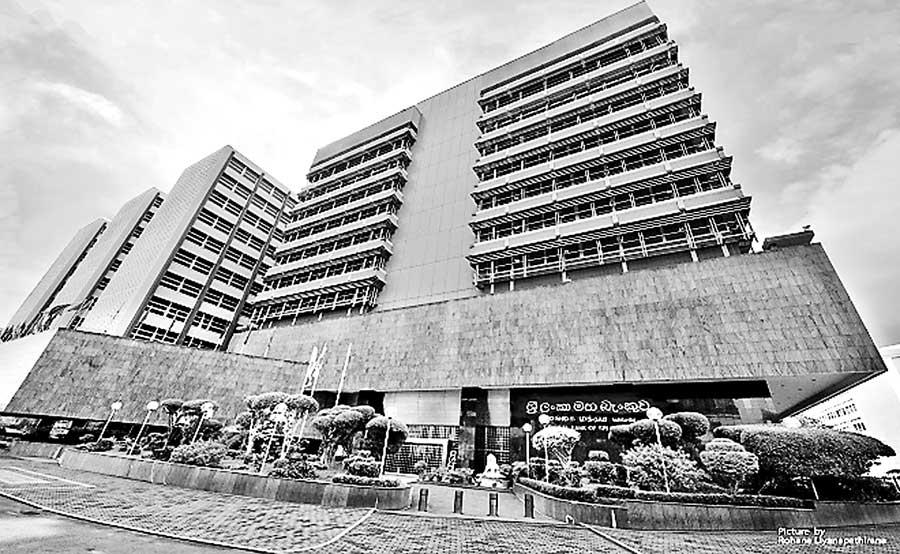Reply To:
Name - Reply Comment

- Only state-owned development banks that can take the risks of nurturing industries
- Sri Lanka has abysmally low investment in Research and Development (R&D)
- Most economists agree and empirical studies show that the highest levels of growth in the economy emerge out of the industrial sector
- In our part of the world, with the neo-liberal project dictating free market policies in recent decades
- Increasing production and expanding the economy are necessary to strengthen economy
These are times for economic debates as the global economy may again be on the edge of falling into a deep recession. In this context, the recent interventions by Prof. Howard Nicholas in Colombo have initiated much needed discussions and debates on the Sri Lankan economy. 
Prof. Nicholas, an internationally reputed economist of Sri Lankan origin, has done extensive work on Sri Lanka in the past. His book titled ‘Marx’s theory of price and its modern rivals’ (Palgrave MacMillan, 2011) is an important critique of neoclassical economics, which is the orthodoxy that continues to dominate the economics discipline. His command of the history of economic thought including critiques of the works of great economists such as Pierro Sraffa reflect theoretical sophistication and grounding that is lacking among contemporary economists. While he has made a powerful scholarly mark with his theoretical work in Marxist economics including issues of value and price formation, his regular interventions on the global economy and Sri Lanka’s challenges shaping public debates on the economy are also commendable.
In this column, I draw from some of his public assertions on industrialisation and the role of the state. Indeed, many of you may remember his powerful comments couple of years ago on how the Sri Lankan development banks were privatised in the 1990s under pressure from the IMF and the Western establishment. What should be the role of the state, what kind of institutions are necessary and what should be the path of industrialisation in Sri Lanka?
 Historically, the strength of the Sri Lanka economy has been its social welfare orientation particularly those of free education and healthcare. While redistribution of resources is crucial for strengthening social welfare, it is only with economic growth that more resources will be available for such distribution. In other words, increasing production and expanding the economy are necessary to strengthen the economy, though we must debate what path and what aspects of the economy are to be expanded, and the social costs of such expansion.
Historically, the strength of the Sri Lanka economy has been its social welfare orientation particularly those of free education and healthcare. While redistribution of resources is crucial for strengthening social welfare, it is only with economic growth that more resources will be available for such distribution. In other words, increasing production and expanding the economy are necessary to strengthen the economy, though we must debate what path and what aspects of the economy are to be expanded, and the social costs of such expansion.
Most economists agree and empirical studies show that the highest levels of growth in the economy emerge out of the industrial sector. The East Asian economies that took off in the 1960s and 1970s did it through industrial manufacturing, but that required sustained interventions by the state and guiding institutions. For example, Japan during its high growth period placed considerable resources and gave political backing to powerful state institutions such as the Ministry of International Trade and Industry and the Japan Development Bank. It was such institutions that nurtured new industries and ensured success in competitive export markets.
In our part of the world, with the neo-liberal project dictating free market policies in recent decades, there are neither effective industrial policies to nurture new industries, nor trade policies for exports and not even the institutions such as development banks crucial for long-term development. This is where Nicholas’ damning comments on the privatisation of the National Development Bank (NDB) and Development Finance Corporation of Ceylon (DFCC) and their conversion into commercial banks in Sri Lanka are significant. It is only state-owned development banks that can take the risks of nurturing industries; while only some of these industries will succeed with time, they will greatly benefit the national economy.
"Historically, the strength of the Sri Lanka economy has been its social welfare orientation particularly those of free education and healthcare"
The important question in my view is the path of industrial development, including in what kind of industries and with what resources. First, Sri Lanka has abysmally low investment in Research and Development (R&D). While some technologies can and should be transferred from international sources, the capacity to absorb such technologies and develop appropriate industries for the local context regardless of whether production is for domestic consumption or exports depends on investment in R&D.
Next, the common argument now is that it is with Foreign Direct Investment (FDI) that industries can be developed. But in reality, foreign capital now including those categorised as FDI in Sri Lanka are mainly channelled into short-term speculative investment in real estate. Furthermore, such speculative capital inflows undermine the existing export base; where currency appreciation with capital inflows affects the competitiveness of existing exporters. Therefore, state investment and state-directed investment are crucial for industrialisation.
"Increasing production and expanding the economy are necessary to strengthen the economy, though we must debate what path and what aspects of the economy are to be expanded, and the social costs of such expansion"
Nicholas has recently argued that with an impending global recession, Western capital will flow into emerging markets and that with the trade war between the US and China, industrial production ventures in China are seeking to relocate to other countries in South East Asia. While both assertions are correct, the experience after the 2008 Global Economic Crisis was that much of the Western capital that flowed into Sri Lanka was in speculative investment. Furthermore, the relocation of industries from China is time bound with the trade war and will move into regions with already established supply chains.
In the case of Sri Lanka, much needed industrialisation including diversification of the industrial base requires fundamental building up. Therefore, with historically falling global trade growth over the last decade, pressures against global trade with increasing protectionist policies and a drop in global demand in the event of a global recession, all point to the need for nurturing industries with an import-substitution mind-set. In other words, we may have to start the work of industrial production and creating an industrial culture with our own little market, and only make significant inroads into the export market in the future.
Industrial production like any other form of production gains advantage when local resources can be used as inputs. With Sri Lanka’s natural endowments and production focused on agriculture and fisheries, industrialisation should begin with value addition in the agro-fisheries sectors both for the domestic consumption and for exports. There is considerable need for investment in technologies to increase agro-fisheries production and for processing in related industries. Indeed, Sri Lankan exports in new forms of value-added food-based products might find it easier to crack the export market than high-tech manufacturing which may take years if not decades to catch up. However, there are sectors such as boat-building which have had an early start by producing for the large domestic multi-day boat fishing fleet, which may now be ready for exports.
Industrialisation like any other economic process depends on place, time and context. While the global economy determines to a large extent what happens in countries like Sri Lanka, our engagement with the global economy has to begin with our location and our strengths and weaknesses. Furthermore, what we propose as national industrial policy may not work for example as regional industrial policy in the war-torn North. Even as Sri Lanka needs industrial catch up with South-East Asia, the Northern Province needs industrial catch up with the Western Province.
Industrial catch up here is not about producing the same goods or competing in the same markets.
Rather, by industrial catch up I mean creating an industrial culture of production, developing a labour force with industrial skills and creating local institutions to nurture new industries. Ultimately, only the state can absorb the risks of industrial expansion whether at the national, provincial or district levels.
The great disservice of the neoliberal recasting of the concept of entrepreneur is that it transferred the important role of the state in industrialisation to that of a businessman and even an ordinary individual as being the key to industrialising a country. This concept of entrepreneur was first projected by the great economist Joseph Schumpeter, who described the limited role of a select and small class of experienced actors, who contributed to technological innovation within broader historical processes of technological, industrial and economic change. Unfortunately in recent times, the concept of entrepreneur has been bastardised by the neoliberals, with claims that a persevering individual with some commercial bank loan or worse short-term micro-financing can create industries and drive the rebuilding of an economy. This ideological shift has also added to the failed thinking on industrialisation of countries like Sri Lanka.
With difficult economic times ahead, peoples’ social welfare entitlements should be protected. At the same time the slow and long process of industrialisation has to begin but in a manner suited for each place leading to employment and economic growth.
And at each level, whether it is in the abandoned rural hinterland of the Vanni or the Industrial belt outside Colombo, the role of the state and development banking in nurturing and guiding new industries are going to be crucial.